- El Clúster de Impacto Social -liderado por Forética y compuesto por más de 50 empresas- presenta una guía práctica con recomendaciones y recursos para la integración de la gestión de los derechos humanos en la estrategia de desarrollo sostenible de las compañías
- En el año del 10º aniversario de los Principios Rectores de Naciones Unidas sobre Empresa y Derechos Humanos y ante la próxima Directiva Europea sobre debida diligencia en derechos humanos y medio ambiente, es imprescindible acelerar la acción de las empresas para garantizar una recuperación sostenible, verde e inclusiva, que no deje a nadie atrás
El Clúster de Impacto Social -liderado por Forética y compuesto por más de 50 grandes empresas encabezas por Grupo Cooperativo Cajamar, Ibercaja, ILUNION y Naturgy- presenta el informe ‘Integrando los derechos humanos en la agenda empresarial. Kit básico para una estrategia efectiva’, una guía práctica con recomendaciones y recursos para integrar la gestión de los derechos humanos de manera estratégica en las agendas de sostenibilidad de las compañías.
El 10º aniversario de los Principios Rectores de Naciones Unidas sobre Empresa y Derechos Humanos que se celebra este año ha puesto en el centro del debate global la necesidad de articular soluciones más efectivas para una integración real del respeto a los derechos humanos desde el punto de vista de las empresas. Uno de los más destacados mecanismos legislativos en esta materia es la próxima Directiva Europea sobre debida diligencia en derechos humanos y medio ambiente que obligará a las empresas -tanto públicas como privadas-, que se rijan por las leyes de los Estados Miembros, establecidas en territorio europeo o que operen en el mercado interior, a establecer mecanismos de debida diligencia específicos. Este avance servirá para homogenizar la legislación sobre derechos humanos y empresa en Europa, en un contexto en el que sólo 1 de cada 3 empresas en la Unión Europea están llevando a cabo procesos de diligencia debida en derechos humanos y en impactos medioambientales.
Germán Granda, Director General de Forética, afirma: “La crisis económica y social sin precedentes provocada por la COVID-19, ha dado lugar a un gran retroceso en importantes niveles de desarrollo en términos de pobreza, falta de acceso a la educación y pérdida de empleo. A día de hoy es más relevante, si cabe, una acción urgente por parte de las empresas que garantice una recuperación sostenible, verde e inclusiva, que no deje a nadie atrás. Es imprescindible contar con empresas más comprometidas con una gestión efectiva de sus impactos en derechos humanos, tanto en su actividad, como en sus productos y servicios y a través de su cadena de valor. Desde el Clúster de Impacto Social de Forética, vemos cómo cada vez se da una mayor relevancia a la ‘S’ -los aspectos sociales- en el enfoque ESG de la sostenibilidad como elemento vinculado a la competitividad y la mitigación de riesgos para las compañías”.
El informe publicado por Forética en el marco del Clúster de Impacto Social incluye cuatro claves para integrar los derechos humanos en la agenda de sostenibilidad social de las empresas: la sensibilización -dando a conocer el business case de los derechos humanos y su vínculo con la sostenibilidad-, el establecimiento de una hoja de ruta para la acción, la utilización de la debida diligencia como guía de referencia y la búsqueda de aliados para un mayor impacto.
Concretamente, la debida diligencia en derechos humanos supone establecer un sistema de gestión interno. Este proceso se divide en seis medidas principales: el establecimiento de un compromiso público, la identificación de riesgos, el cese, prevención o mitigación del daño, la reparación del mismo, la comunicación y la monitorización de medidas.
Tendencias nacionales e internacionales en derechos humanos desde la perspectiva empresarial
Ricardo Trujillo, Manager del Clúster de Impacto Social de Forética, destaca: “Observamos que distintas megatendencias, como el cambio climático o la transformación digital, tienen un impacto claro en la interpretación y desarrollo de los derechos humanos, extendiéndolos a situaciones que anteriormente no existían (como la protección de datos y utilización de información personal, o la inteligencia artificial) o una mayor interrelación y dependencia (como la calidad ambiental y su relación con los estándares de vida adecuados). En este contexto, las empresas que forman parte del Clúster han dedicado este año a entender el contexto institucional y empresarial de los derechos humanos, a analizar cuál es el papel de las empresas a la hora de promover mayores estándares de respeto y protección de los derechos humanos y proponer vías de actuación sencillas y efectivas en torno a la debida diligencia como mecanismo fundamental de acción empresarial en este ámbito”.
El encuentro empresarial organizado por Forética en el marco del Clúster de Impacto Social, ha sido inaugurado por el Director de la Oficina de la OIT para España, Félix Peinado. Como experta internacional, se ha contado con la participación de Elena Espinoza, Head of Social Issues, Principles for Responsible Investment (PRI), quien ha abordado la creciente relevancia para los inversores de los temas vinculados a derechos humanos.
Además, en el encuentro se han podido escuchar experiencias de alto impacto por parte de las empresas líderes del Clúster, que han compartido sus compromisos en materia de derechos humanos, las principales medidas desarrolladas para promover su protección, así como sus prioridades en el corto y medio plazo en este ámbito. Estas han sido abordadas por Javier Dueñas, Delegado para la Agenda de Desarrollo Sostenible de Grupo Cooperativo Cajamar; Fernando Riaño, Director de Relaciones Institucionales y Sostenibilidad de Grupo Social ONCE; María González, Responsable de RSC de Ibercaja; y Nuria Rodríguez, Directora de Medioambiente y Responsabilidad Social de Naturgy.
Desde su creación en 2018, el Clúster de Impacto Social se ha enfocado en analizar temas como el rol empresarial para hacer frente a las brechas de desigualdad, el impacto empresarial en género y diversidad o la medición de impacto.
El Clúster de Impacto Social en 2021 está liderado por Grupo Cooperativo Cajamar, Ibercaja, ILUNION y Naturgy. El grupo está compuesto además por las siguientes empresas: Accenture, Adif, Airbus, Alsea, Atresmedia, Bayer, CaixaBank, Campofrío, Cecabank, CEMEX, Cerealto Siro, CIE Automotive, Cofares, Damm, DHL, El Corte Inglés, Emasesa, Enagás, Enaire, Endesa, Enresa, Enusa, Ferrovial, Fundación ONCE, Gestamp, GSK, Grupo Antolín, Grupo Calvo, Iberdrola, IBM, ICO, IKEA, ISS, Jealsa, LafargeHolcim, Lilly, L’Oréal, ManpowerGroup, Mercadona, Mutua Madrileña, OHLA, P&G, Pascual, QuirónSalud, Reale, Red Eléctrica de España, Reganosa, Sacyr, Sanitas, Santander, Tendam, Urbaser y Zurich.
Para ayudar a las empresas en la integración de los derechos humanos como elemento fundamental, el enfoque del Clúster de Impacto Social es complementado a través de las alianzas de Forética con partners globales como World Business Council for Sustainable Development (WBCSD) y CSR Europe.
Consulta aquí el informe ‘Integrando los derechos humanos en la agenda empresarial. Kit básico para una estrategia efectiva’



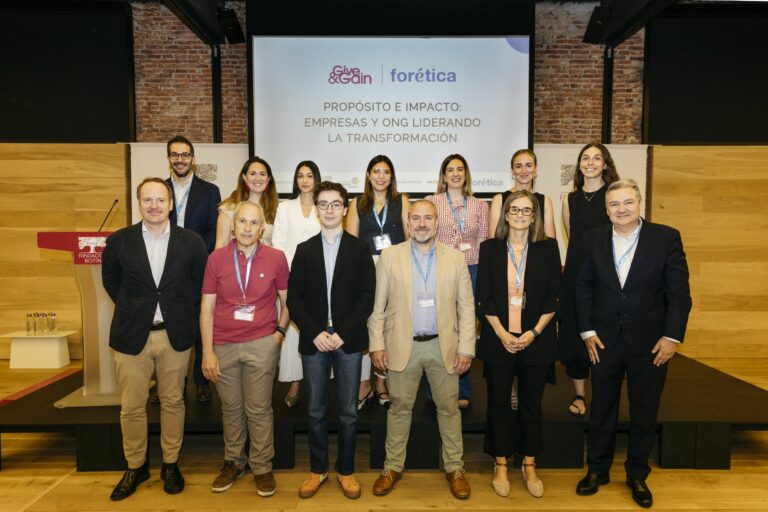

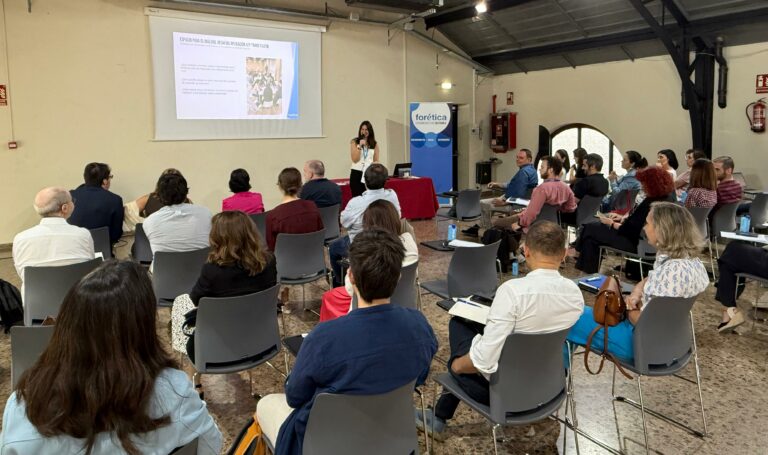
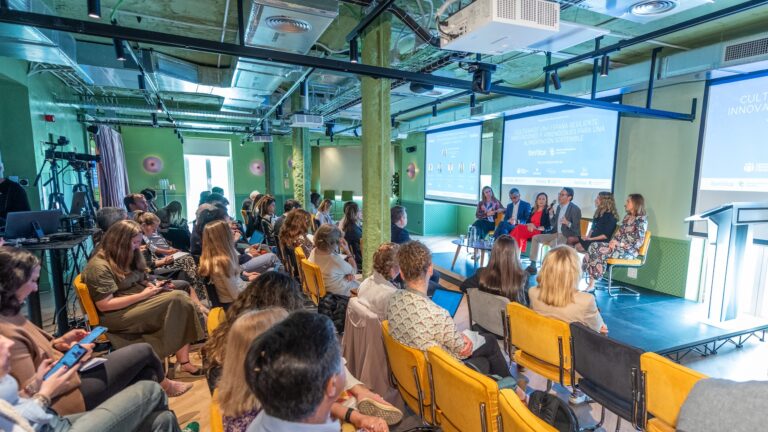
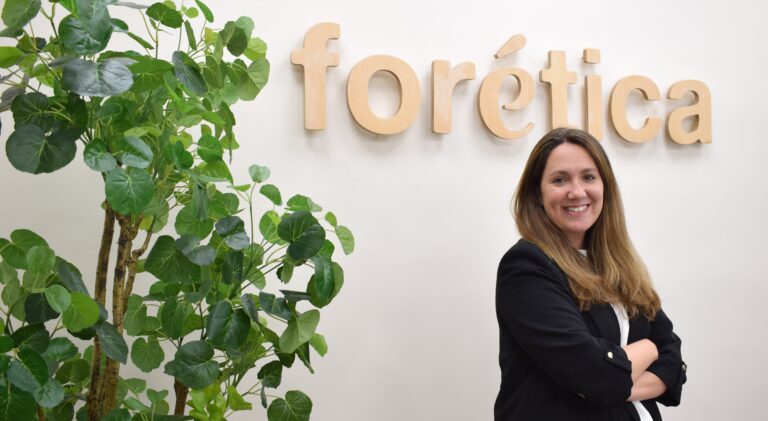
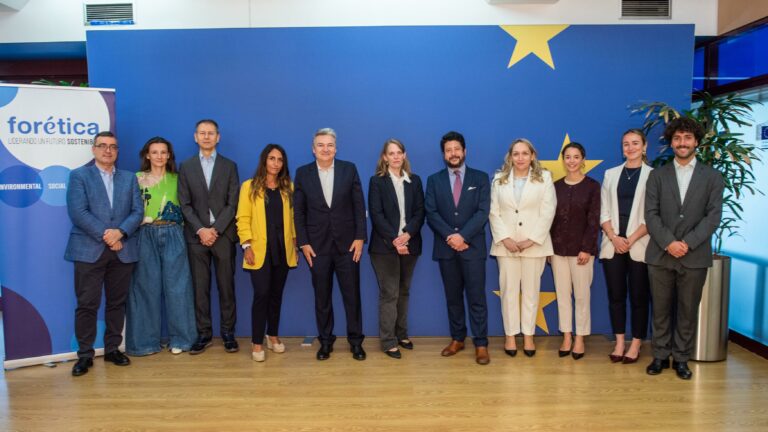
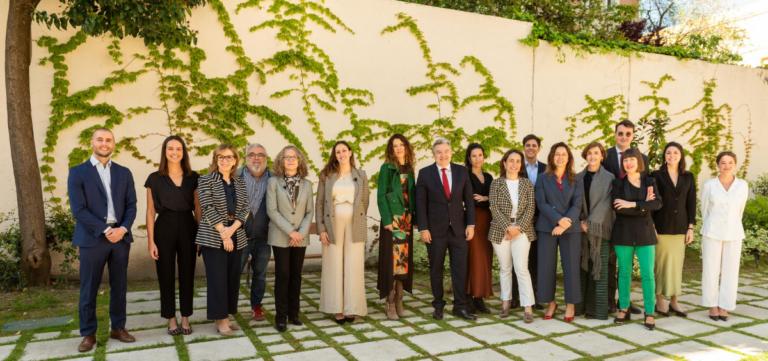
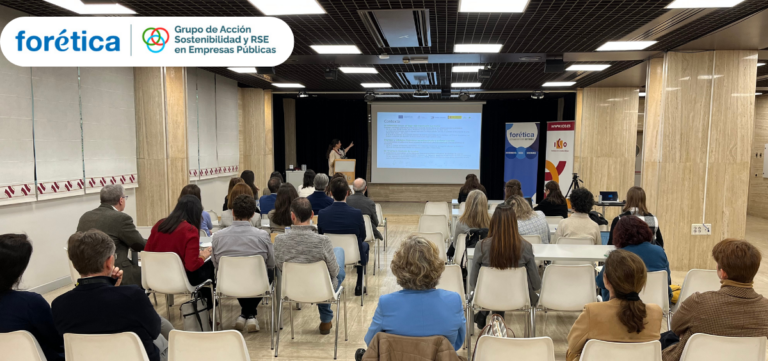
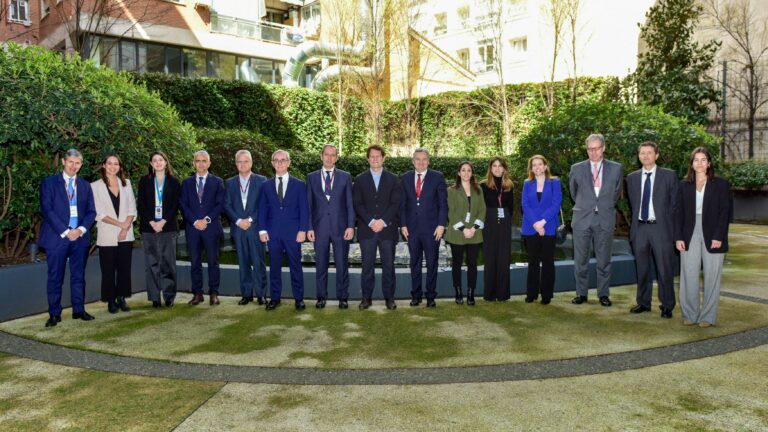


Déjanos tu comentario